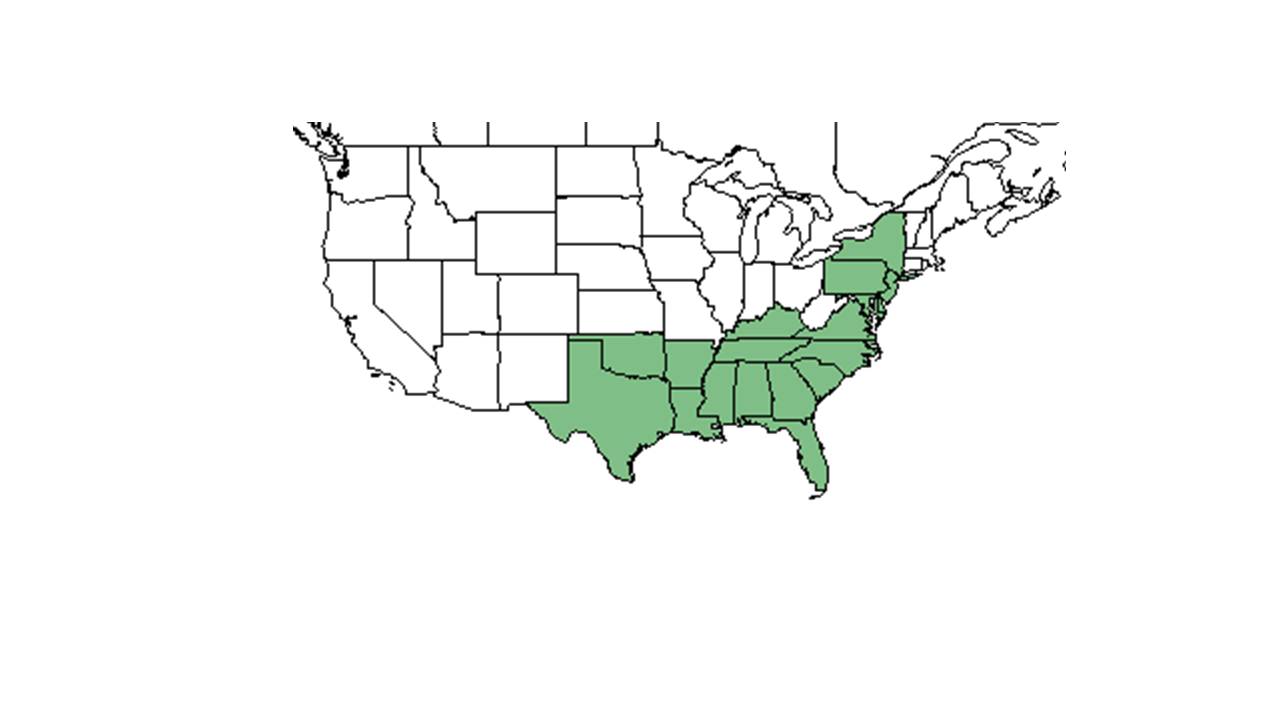Difference between revisions of "Hypericum crux-andreae"
(→Description) |
|||
| Line 24: | Line 24: | ||
==Ecology== | ==Ecology== | ||
===Habitat=== <!--Natural communities, human disturbed habitats, topography, hydrology, soils, light, fire regime requirements for removal of competition, etc.--> | ===Habitat=== <!--Natural communities, human disturbed habitats, topography, hydrology, soils, light, fire regime requirements for removal of competition, etc.--> | ||
| − | + | It is found in flatwoods longleaf pine wiregrass ecosystem.<ref>Brockway, D. G. and C. E. Lewis (1997). "Long-term effects of dormant-season prescribed fire on plant community diversity, structure and productivity in a longleaf pine wiregrass ecosystem." Forest Ecology and Management 96: 167-183.</ref>It is found in titi/cypress swamp community type of Florida.<ref>Drewa, P., W. Platt, et al. (2002). "Community Structure along Elevation Gradients in Headwater Regions of Longleaf Pine Savannas." Plant Ecology 160(1): 61-78.</ref> | |
| + | |||
===Phenology=== <!--Timing off flowering, fruiting, seed dispersal, and environmental triggers. Cite PanFlora website if appropriate: http://www.gilnelson.com/PanFlora/ --> | ===Phenology=== <!--Timing off flowering, fruiting, seed dispersal, and environmental triggers. Cite PanFlora website if appropriate: http://www.gilnelson.com/PanFlora/ --> | ||
===Seed dispersal=== | ===Seed dispersal=== | ||
Revision as of 15:15, 10 July 2015
| Hypericum crux-andreae | |
|---|---|

| |
| Scientific classification | |
| Kingdom: | Plantae |
| Division: | Magnoliophyta - Flowering plants |
| Class: | Magnoliopsida – Dicotyledons |
| Order: | Theales |
| Family: | Clusiaceae ⁄ Guttiferae |
| Genus: | Hypericum |
| Species: | H. crux-andreae |
| Binomial name | |
| Hypericum crux-andreae (L.) Crantz | |

| |
| Natural range of Hypericum crux-andreae from USDA NRCS Plants Database. | |
Contents
Description
Common Name: St. Peterswort
Distribution
Ecology
Habitat
It is found in flatwoods longleaf pine wiregrass ecosystem.[1]It is found in titi/cypress swamp community type of Florida.[2]
Phenology
Seed dispersal
Seed bank and germination
Several short-lived perennial forbs also have a seed bank persistent for at least several years.[3]
Fire ecology
Pollination
Use by animals
Diseases and parasites
Conservation and Management
Cultivation and restoration
Photo Gallery
References and notes
- ↑ Brockway, D. G. and C. E. Lewis (1997). "Long-term effects of dormant-season prescribed fire on plant community diversity, structure and productivity in a longleaf pine wiregrass ecosystem." Forest Ecology and Management 96: 167-183.
- ↑ Drewa, P., W. Platt, et al. (2002). "Community Structure along Elevation Gradients in Headwater Regions of Longleaf Pine Savannas." Plant Ecology 160(1): 61-78.
- ↑ Platt, W. J., S. M. Carr, et al. (2006). "Pine savanna overstorey influences on ground-cover biodiversity." Applied Vegetation Science 9: 37-50.